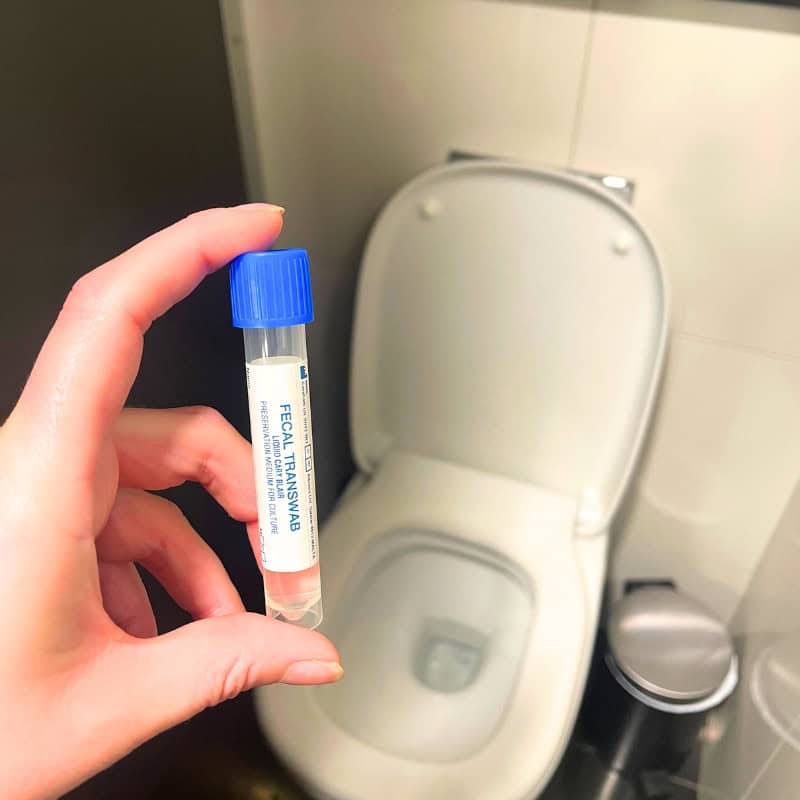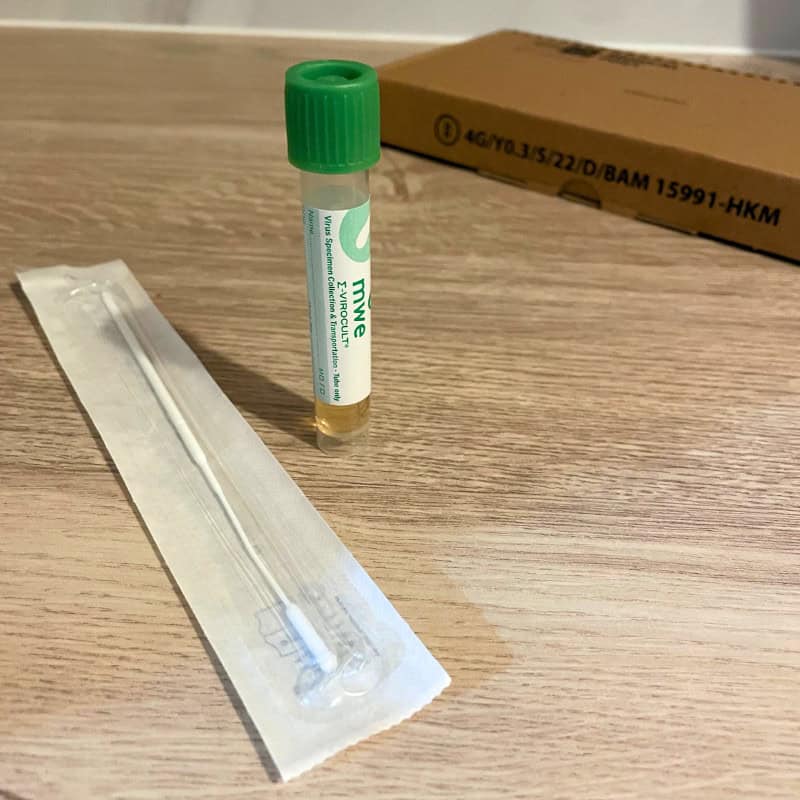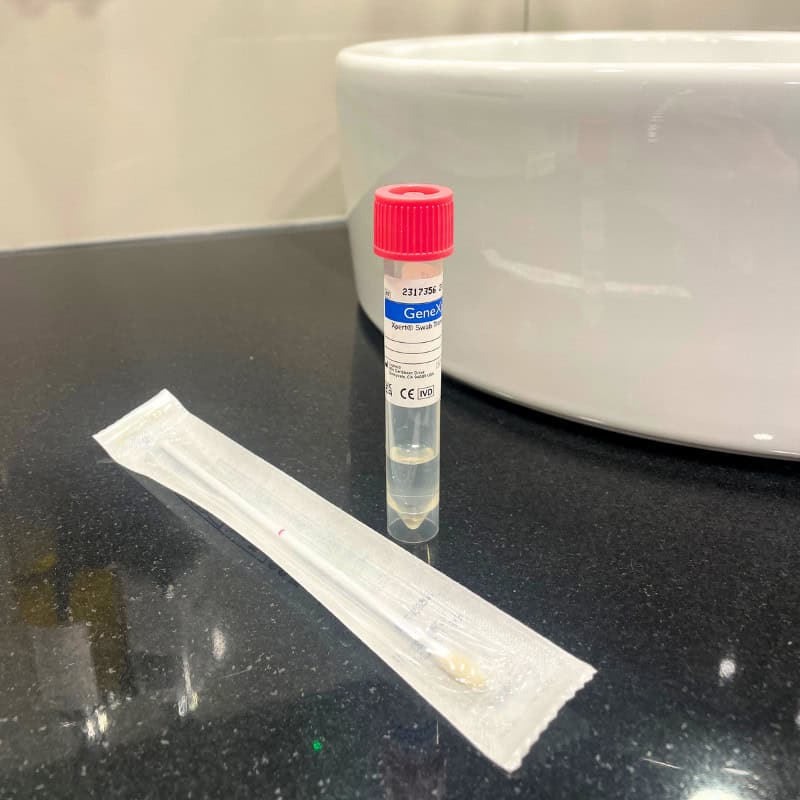Month: October 2018
Travel Clinic nurse, Lucy Mildren, has been awarded the International Society of Travel Medicine’s Certificate in Travel Health.
We’re happy to announce another of our travel nurses, Lucy, has obtained the International Society of Travel Medicine (ISTM) Certificate of Knowledge.
The ISTM Certificate of Knowledge is an examination that proves an individual has demonstrated the expertise in the travel profession and a solid knowledge of travel medicine care and consultation. The exam is held in a different location annually, Lucy attended the Atlanta examination earlier this year.
The field of travel medicine has grown dramatically over the years, as greater numbers of people travel to remote and exotic destinations. Almost a billion travellers cross international borders annually for both work and leisure. However, research worryingly suggests that very few seek pre-travel health advice.
Fleet Street Clinic is one of the UK’s leading providers in travel medicine, vaccinations and travel advice. Knowing another member’s of the team has obtained this certification in travel health provides greater confidence to the public and patients we treat that our experience and knowledge is all-around exceptional.
Travel medicine has become increasingly complex due to a number of reasons, such as increased drug resistance, global migration patterns and the rise in travellers with chronic health conditions.
Congratulations Lucy, from us all at Fleet Street Clinic.
Book your Travel Vaccines Today
For more information about the Certificate of Knowledge from ISTM website
Travel Vaccines are a key component of pre-travel preparation.
If you would like to speak to Lucy or another of our travel nurses prior to travelling, you can book an appointment online.
Autumn in Japan
Japan’s Autumn runs from September – November and attracts many visitors each year to view the beautiful changing of the Autumn foliage, known as koyo.
Taking outings to appreciate the beauty of autumn has been a custom in Japan for centuries. For many years now, this has become a popular activity for tourists too. Visitors explore the whole country to find the best ‘Autumn’ spots to view the natural beauty of landscapes bursting with yellow, orange and red leaves.
This activity tends to divert travellers away from the urban cities and into rural environments. Unfortunately, this increases exposure to some harmful diseases.
If you’re planning a trip to Japan this autumn….check out our travel vaccination advice.
Tetanus
Whether you are visiting the ultra-modern counterpart of Tokyo or taking a trip to Japan’s must-see landmark of Mount Fiji, traveller’s should ensure they are up-to-date with their tetanus vaccine. The vaccination is a combination vaccine with diphtheria and polio (DTP), which is routinely given to all children in the UK. However, you should ensure you and your children are up-to-date with your routine vaccinations before travelling. The vaccine can be given once every 10 years to those at risk.
Arm yourself with Insect Repellent
You can catch a number of diseases from mosquito and tick bites. You can minimise your risk by wearing long loose clothing and wearing plenty of insect repellant with a minimum of 50% DEET. Our Ultimate Bug Kit is available to purchase online.
Japanese Encephalitis (JE) is transferred by mosquito bites. There is an increased risk for those travelling in rural areas with rice fields, marshlands, or pig farming areas. It is advised to avoid these areas, particularly during mosquito feeding times, dawn and dusk.
Those travelling to the Ryukyu Islands (Okinawa) should consider the Japanese Encephalitis vaccination as the highest risk season is typically April to December. Travellers with long-stays planned in rural area’s should also strongly consider the Japanese Encephalitis vaccine.
Tick-Borne Encephalitis (TBE) is transmitted by ticks and rarely by unpasteurised milk and dairy products. Travellers are at increased risk of exposure during outdoor activities in areas of vegetation (gardens, parks, meadows, forest fringes and glades). Ticks are usually most active between early spring and late autumn. We’d advise those travelling during that time to consider the TBE vaccination.
The main affected area is Hokkaido although there is a possible risk in Shimane Prefecture, Honshu.
Those travellers who aren’t planning on getting vaccinated should avoid eating and drinking unpasteurised milk products. We’d advise all adventurous eaters to consider the TBE vaccination prior to travelling.
Measles Outbreak
Earlier this year we saw outbreaks of measles across the globe, including a large outbreak in Okinawa in Japan. Most countries routinely immunise children against measles, in combination with mumps and rubella (the MMR). However, if for some reason you or your child have missed this then receiving two doses of the MMR vaccination before travelling will give effective protection. A simple blood test can determine immunity. Those found non-immune should book in for the vaccinations prior to travel.
The Flu
Seasonally Japan suffers from regular outbreaks of flu. Tokyo and other major metropolitan centres in Japan are very dense, which increases the spread of the flu. The flu vaccination available in the UK will dramatically reduce the chance of travellers catching the flu while abroad.
Flight Times
A flight from the UK to Japan are over 11 hours direct. Prolonged periods of immobility on long-haul flights pose a risk of developing a blood clot or, deep vein thrombosis (DVT). Travellers can minimise the risk of this by ensuring they keep mobile and hydrated on the flight, avoid wearing restrictive clothing, and wearing flight stockings to aid circulation.
Altitude illness in Japan
Rapid exposure to low amounts of oxygen at high elevation can cause altitude sickness. There are a number of places in Japan which are higher than 2,500 metres, such as Mt Fuji, 3,776m.
Travellers should avoid travelling from altitudes less than 1,200m to altitudes greater than 3,500m in a single day. An ascent above 3,000m should be gradual. Travellers should avoid increasing sleeping elevation by more than 500m per day. Also, ensure a rest day (at the same altitude) every three or four days.
Book your travel appointment today
By Anna Chapman | Travel Nurse | October 2018
November is an optimum time of year to travel to Mexico. Uncrowded beaches with cheaper hotels and air travel are all perks for those who want an affordable and relaxing trip.
Summer in Mexico can be too hot for some, with highs of 32 degrees. Whereas, Winter temperatures are much more comfortable, with highs of 24 degrees instead. Hurricane season has also finished, the rain has let up and the crowds that appear later in December are yet to arrive.
Many prefer a winter visit.
Dia de Los Muertos is Mexico’s most colourful and festive holiday; celebrated from October 31 to November 2. ‘Day of the Dead’ is an incredible expression of Mexico’s religious syncretism and a tradition that dates back centuries. It celebrates and honours friends and relatives who have died. Festivities take place in Central and Southern Mexico with elaborately decorated home altars, parades, parties and nighttime visits to the gravestones of loved ones. Expect many candles, flamboyantly decorated skull-shaped masks and music.
Be warned of mad dogs, wild cats and blood-sucking bats…
Mexico has a high risk of rabies which is a fatal disease if left untreated. The rabies infection is spread through a bite, scratch or lick of an infected animal. You should avoid contact with feral animals or wildlife at all costs. Try to anticipate an animal’s actions and always be careful not to make sudden movements or surprise them.
Travellers can minimise the risk by receiving a rabies vaccination prior to travel. As rabies is a fairly common traveller’s risk, we try to make this particular vaccine affordable for all travellers. You can proactively minimise your risk of contracting rabies, putting your mind a ease for your holiday.
If you suspect you’ve been bitten by an animal with rabies, even after having the rabies vaccine, you should seek medical care immediately.
Banish the bugs
Apart from causing an itchy and painful bite, Mexican mosquitoes can spread viruses such as dengue fever, chikungunya and Zika virus. It is advised to use an insect repellent containing 50% DEET, wear long loose clothing, and take a plug-in vaporiser. We have an Ultimate Bug Kit available to order online. All of these will ensure your room stays mosquito free and you, bite free!
The Zika virus is of particular concern to those who are pregnant or planning to become pregnant. Specialist advice should be sought before travel. Our Central London clinic offers Zika Virus testing. Our expert team will give you clear, practical advice on the right test for your individual circumstance. Following the test, we can help you interpret the results and assist in planning your next step towards starting a family.
Don’t get the day of the dead diarrhoea
While Mexican food is delicious, travellers should apply some necessary precautions to prevent picking up stomach bugs which could ruin your holidays. We recommend that travellers avoid tap water and ice in their drinks. It’s advisable to stick to bottled water only as this reduces your risk. Also, do ensure your food is cooked through and served hot. To help get prepared, we recommend purchasing one of our Worldwide Gastro Kits.
Hepatitis A
Hepatitis A is a viral infection which is spread via contaminated food and water. Washing your hands regularly, especially after using the toilet can stop the spread of Hepatitis A. A sensible tip would be to take some alcohol hand gel with you to clean your hands before eating. Make sure you have received a vaccination against Hepatitis A before departure.
FLU
There are many celebrations throughout the year in Mexico, such as ‘Revolution Day’ on November 20th. Large crowds will gather to celebrate the 1910 revolution anniversary. This is a unique celebration for a tourist to experience but unfortunately, large crowds increase your risk of catching and spreading germs.
Factors that can increase the risk of getting sick at a mass gathering include the number of people in attendance, the type of venue, the type of infections people carry into it and also how people interact with each other.
The Flu can spread rapidly as the bacteria and viruses can easily be passed from one person to the other by a simple cough or sneeze. The best way to prevent flu is to get your flu jab before departure.
Don’t let your health ruin your holiday to Mexico.
You should take what are reasonable, practical, prevention steps to stay well and enjoy your trip to Mexico.
Book your travel appointment today
By Anna Chapman | Travel Nurse | October 2018
Breast Cancer Now’s ‘Wear it Pink’ day is one of the biggest fundraising events in the UK.
Thousands of amazing people will ‘Wear It Pink’ in their communities, schools or workplaces for the UK’s largest breast cancer charity, Breast Cancer Now. This Friday 19th October the staff of Fleet Street will show off their best pink garments to raise awareness and show solidarity for such a great charity.
‘’This year, 55,000 women will hear the words “it’s breast cancer”
Breast Cancer Now supports nearly 450 of the world’s best researchers across the UK and Ireland. Working together to help prevent breast cancer, help improve the lives of those dealing with it now and most importantly stop people from dying from the disease. Research holds the key to a future where all that changes. Ensuring women get to enjoy their best life whether that be watching their children grow up or travelling the globe. It’s about making sure women are always able to create a lifetime of memories with the people they love.
The Fleet Street Clinic is championing Breast Cancer Now’s goal, that by 2050, everyone who develops breast cancer will live – and live well. By our staff wearing pink, raising awareness and donating we can help get there and make life-saving research happen.
Well Woman Services
We have four female GPs specialising in women’s health. Women’s health is a focus for us, and one of our highest priorities.
Our Well Woman health checks are focused on protecting your well-being and meeting your exact needs. Each comprehensive medical is tailored to your circumstances and designed to screen for health problems at the earliest possible stage.
Well-woman health checks include:
- Recording your height, weight and body mass index (BMI)
- Blood pressure
- Breast examination (and instruction on breast self-examination)
- Cervical smear test
- Pelvic examination
- Urine test
- Blood tests





